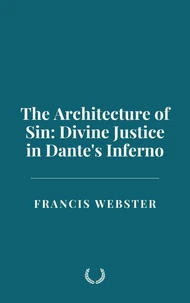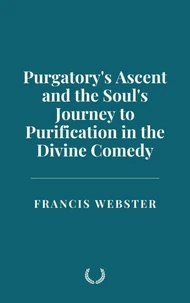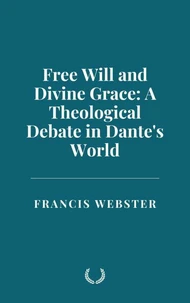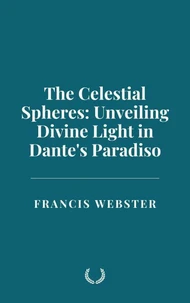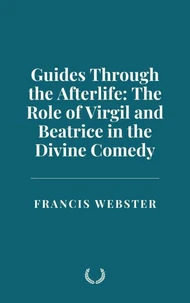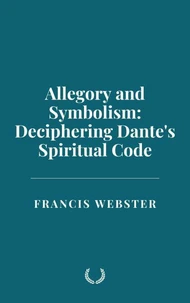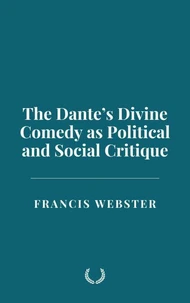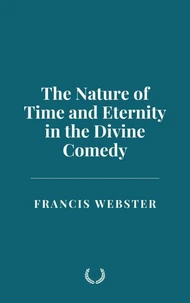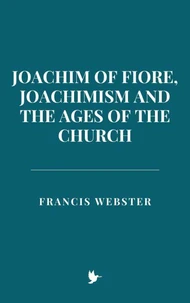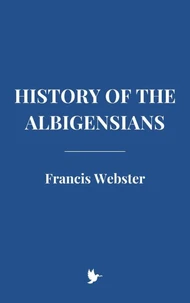The Catholic Doctrine of Angels
Par :Formats :
Disponible dans votre compte client Decitre ou Furet du Nord dès validation de votre commande. Le format ePub est :
- Compatible avec une lecture sur My Vivlio (smartphone, tablette, ordinateur)
- Compatible avec une lecture sur liseuses Vivlio
- Pour les liseuses autres que Vivlio, vous devez utiliser le logiciel Adobe Digital Edition. Non compatible avec la lecture sur les liseuses Kindle, Remarkable et Sony
 , qui est-ce ?
, qui est-ce ?Notre partenaire de plateforme de lecture numérique où vous retrouverez l'ensemble de vos ebooks gratuitement
Pour en savoir plus sur nos ebooks, consultez notre aide en ligne ici
- FormatePub
- ISBN8230733942
- EAN9798230733942
- Date de parution05/01/2025
- Protection num.pas de protection
- Infos supplémentairesepub
- ÉditeurIndependently Published
Résumé
This work presents an in-depth exploration of the Catholic doctrine of angels, spanning biblical foundations, theological development, and historical interpretations, as well as their role in personal devotion, liturgy, and the eschatological fulfillment of God's divine plan. The study emphasizes how angels, as spiritual beings created by God, serve as messengers, protectors, and agents of divine justice and mercy.
Through a detailed analysis of primary sources, including Scripture, writings of the Church Fathers, medieval theology, and mystical literature, this book traces the evolution of angelology within the Church's teachings. The narrative examines key moments of angelic intervention in salvation history, such as the Annunciation, the Resurrection, and the Last Judgment, highlighting their theological significance.
The role of angels in the liturgical worship of the Church, particularly in the Eucharist, underscores their participation in the cosmic adoration of God alongside the saints. Furthermore, the enduring belief in guardian angels reinforces the intimate relationship between humanity and the heavenly realm, providing comfort, guidance, and spiritual defense. Angels in art, literature, and sacred tradition are also examined to illustrate how their representations have shaped Christian spirituality and cultural imagination across the centuries.
From early Christian frescoes and Byzantine icons to the writings of Dante and modern works by Fulton Sheen and Peter Kreeft, angels have been portrayed as symbols of divine providence, justice, and beauty. The study concludes by reflecting on the relevance of angelology in contemporary spirituality, emphasizing its role in fostering hope, perseverance, and awareness of the spiritual realities that transcend the material world.
In an age marked by uncertainty and moral ambiguity, the doctrine of angels serves as a reminder of God's constant presence and the promise of victory over sin and death. Ultimately, this work presents the angels not as distant abstractions but as active participants in the divine plan, inviting humanity to join in the eternal worship of the Triune God alongside the heavenly host.
Through a detailed analysis of primary sources, including Scripture, writings of the Church Fathers, medieval theology, and mystical literature, this book traces the evolution of angelology within the Church's teachings. The narrative examines key moments of angelic intervention in salvation history, such as the Annunciation, the Resurrection, and the Last Judgment, highlighting their theological significance.
The role of angels in the liturgical worship of the Church, particularly in the Eucharist, underscores their participation in the cosmic adoration of God alongside the saints. Furthermore, the enduring belief in guardian angels reinforces the intimate relationship between humanity and the heavenly realm, providing comfort, guidance, and spiritual defense. Angels in art, literature, and sacred tradition are also examined to illustrate how their representations have shaped Christian spirituality and cultural imagination across the centuries.
From early Christian frescoes and Byzantine icons to the writings of Dante and modern works by Fulton Sheen and Peter Kreeft, angels have been portrayed as symbols of divine providence, justice, and beauty. The study concludes by reflecting on the relevance of angelology in contemporary spirituality, emphasizing its role in fostering hope, perseverance, and awareness of the spiritual realities that transcend the material world.
In an age marked by uncertainty and moral ambiguity, the doctrine of angels serves as a reminder of God's constant presence and the promise of victory over sin and death. Ultimately, this work presents the angels not as distant abstractions but as active participants in the divine plan, inviting humanity to join in the eternal worship of the Triune God alongside the heavenly host.
This work presents an in-depth exploration of the Catholic doctrine of angels, spanning biblical foundations, theological development, and historical interpretations, as well as their role in personal devotion, liturgy, and the eschatological fulfillment of God's divine plan. The study emphasizes how angels, as spiritual beings created by God, serve as messengers, protectors, and agents of divine justice and mercy.
Through a detailed analysis of primary sources, including Scripture, writings of the Church Fathers, medieval theology, and mystical literature, this book traces the evolution of angelology within the Church's teachings. The narrative examines key moments of angelic intervention in salvation history, such as the Annunciation, the Resurrection, and the Last Judgment, highlighting their theological significance.
The role of angels in the liturgical worship of the Church, particularly in the Eucharist, underscores their participation in the cosmic adoration of God alongside the saints. Furthermore, the enduring belief in guardian angels reinforces the intimate relationship between humanity and the heavenly realm, providing comfort, guidance, and spiritual defense. Angels in art, literature, and sacred tradition are also examined to illustrate how their representations have shaped Christian spirituality and cultural imagination across the centuries.
From early Christian frescoes and Byzantine icons to the writings of Dante and modern works by Fulton Sheen and Peter Kreeft, angels have been portrayed as symbols of divine providence, justice, and beauty. The study concludes by reflecting on the relevance of angelology in contemporary spirituality, emphasizing its role in fostering hope, perseverance, and awareness of the spiritual realities that transcend the material world.
In an age marked by uncertainty and moral ambiguity, the doctrine of angels serves as a reminder of God's constant presence and the promise of victory over sin and death. Ultimately, this work presents the angels not as distant abstractions but as active participants in the divine plan, inviting humanity to join in the eternal worship of the Triune God alongside the heavenly host.
Through a detailed analysis of primary sources, including Scripture, writings of the Church Fathers, medieval theology, and mystical literature, this book traces the evolution of angelology within the Church's teachings. The narrative examines key moments of angelic intervention in salvation history, such as the Annunciation, the Resurrection, and the Last Judgment, highlighting their theological significance.
The role of angels in the liturgical worship of the Church, particularly in the Eucharist, underscores their participation in the cosmic adoration of God alongside the saints. Furthermore, the enduring belief in guardian angels reinforces the intimate relationship between humanity and the heavenly realm, providing comfort, guidance, and spiritual defense. Angels in art, literature, and sacred tradition are also examined to illustrate how their representations have shaped Christian spirituality and cultural imagination across the centuries.
From early Christian frescoes and Byzantine icons to the writings of Dante and modern works by Fulton Sheen and Peter Kreeft, angels have been portrayed as symbols of divine providence, justice, and beauty. The study concludes by reflecting on the relevance of angelology in contemporary spirituality, emphasizing its role in fostering hope, perseverance, and awareness of the spiritual realities that transcend the material world.
In an age marked by uncertainty and moral ambiguity, the doctrine of angels serves as a reminder of God's constant presence and the promise of victory over sin and death. Ultimately, this work presents the angels not as distant abstractions but as active participants in the divine plan, inviting humanity to join in the eternal worship of the Triune God alongside the heavenly host.




